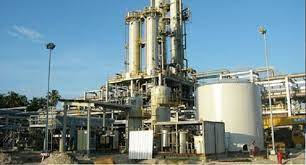U.S. President Joe Biden in Angola to Strengthen Ties, Promote Investments

U.S. President Joe Biden has begun his long-anticipated maiden visit to sub-Saharan Africa as US president but it comes amidst uncertainty over future US-Africa relations as Donald Trump prepares to succeed him in January.
Biden’s visit to oil-rich Angola seeks to underline an attempt by America to focus more on trade and heavy investment in infrastructure, in what some analysts see as the most direct counter yet to China’s influence on the continent.
“It’s a perfect marriage of convenience,” Angolan analyst Edmilson Angelo told the BBC.
Biden’s choice of Angola is significant – he is the first US president to visit the country, signalling a dramatic improvement in relations between the two nations.
Angola was firmly in the political orbit of China and Russia after independence from Portuguese colonial rule in 1975, but since taking power in 2017, President João Lourenço has steered it towards closer relations with the US.
“Lourenço’s administration has seen Angolan foreign policy move away from ideology towards pragmatic multipolarity, becoming truly non-aligned,” said Alex Vines, director of the Africa programme at Chatham House, a London-based think thank.
Biden will highlight his signature initiative in the region – a railway line that will stretch for 1,344km (835 miles), connecting the cobalt, lithium and copper mines in the Democratic Republic of Congo, and the copper-belt region of Zambia, to the Angolan port city of Lobito on the Atlantic Ocean.
Apart from oil, Angola is also rich in minerals, including cobalt and lithium, which are essential for making batteries for electric vehicles.
Once completed, the Lobito Corridor will help transport these important minerals from the resource-rich heart of Africa across to Europe and the US.
On its website, the Lobito Corridor Investment Promotion Authority (IPA), says the US involvement “represents the first alternative from Washington DC to China’s Belt and Road Initiative” that is aimed at building a series of trade routes that tie several countries in Africa, and elsewhere, to the Asian giant.
Biden’s visit comes at the tail-end of his presidency, with no clarity yet on whether the Trump administration will continue with the project.
Vines believes it “may survive the Trump presidency as it is primarily aimed at competing against China”.
However, he points out that both Western and Chinese firms will be able to use the infrastructure, and that “may make its value questionable to Trump, a US president who will likely define his administration in large measure by competition with Beijing”.
Lourenço expressed hope that the Trump administration would build on the initiative.
“Powers come and go, so, all we have to do is to be ready to work with those that will be in power,” he told the New York Times ahead of Biden’s visit.
The Lobito Corridor is a joint project between the three African countries, the US, other G7 powers and private investors.
“We have a collective commitment for global support among the G7 countries of $600bn [£470bn] and over – through 2027,” said Helaina Matza, the acting special coordinator for the project at the US Department of State.
Lourenço defended the investment, dismissing concerns that it mimics the colonial-era exploitation of Africa’s resources.





